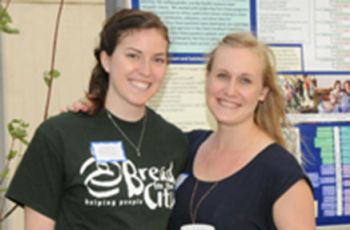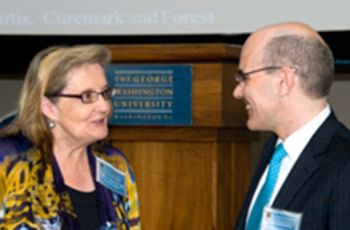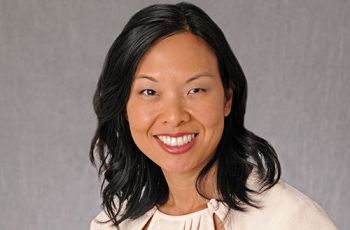News Archive
Gloria Wilder, M.D., M.P.H., president and CEO of Core Health, arrived more than an hour late to the Interdisciplinary Student Community-Oriented Prevention Enhancement Service’s (ISCOPES) end-of-year celebration at the George Washington University, April 17. Despite leaving her home near…
In late March, the Centers for Disease Control and Prevention released a report estimating that about one out of every 88 children was diagnosed with an autism spectrum disorder in 2008. That’s a more than 20 percent increase from 2006 and a spike that’s dominated recent headlines nationwide.…
A new, streamlined text book, titled Neuro-Oncology, which is part of the Neurology in Practice Series, co-authored by Roger J. Packer, M.D., and David Schiff, M.D., provides a concise update on translational research and best clinical practices in a rapidly evolving discipline.
Alex Fortenko, M.P.H. ‘11, a first-year medical student in the George Washington University School of Medicine and Health Sciences (SMHS), says it’s a minor miracle when he catches a meal outside of Ross Hall. Between classes, exams, and studying, grocery shopping sinks to the bottom of the to-…
Match Day was different this year for Elizabeth Wiley, J.D., M.P.H., a fourth-year medical student at The George Washington University School of Medicine and Health Sciences (SMHS).
The GW School of Medicine and Health Sciences proudly congratulates faculty members who have made the US News & World Report 2013 ‘Top Doctors’ list and in Castle Connolly's estimation, are among the top 1% in the nation in his or her specialty:
WASHINGTON (April 30, 2012) – In a surveillance study of over 12 million bacteria, investigators at The George Washington University and Providence Hospital found E. coli antimicrobial resistance to ciprofloxacin, the most commonly prescribed antimicrobial for urinary tract infections in the U.S…
WASHINGTON (April 23, 2012) – How do you impact one of modern medicine’s great challenges? A total of 1,638,910 new cancer cases and 577,190 deaths from cancer are projected to occur in the United States in 2012.
Congratulations to John van den Anker, M.D., Ph.D, professor of Pediatrics, who was named the Distinguished Researcher of the year for GW.
Dr. Katherine Chretien, associate professor of Medicine, authored an editorial about coping with stress related to families in relation to military deployment.



